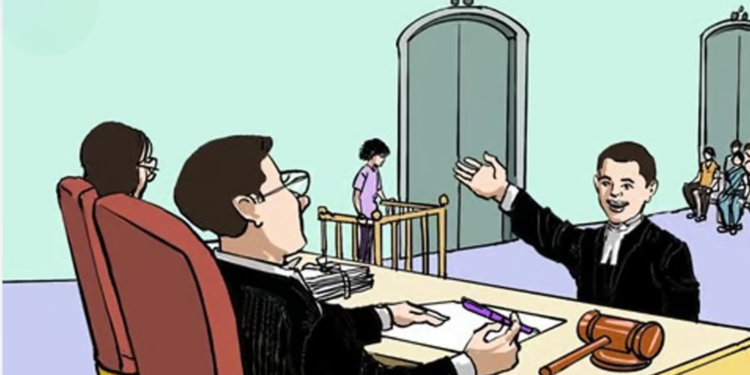The Madhya Pradesh High Court recently reprimanded a lawyer who stated that if his case were dismissed, he would lose his legal fee [Kushi & Associates Vs The State Of Madhya Pradesh And Others].
In an order dated August 2, Justice Gurpal Singh Ahluwalia emphasized that the legal profession is not a business or commercial activity, and lawyers should not pressure the court for a favorable order simply to secure their fees.
“They are expected to present their client’s case using their professional skills, but they should not turn the profession into a commercial activity. Lawyers cannot pressure the Court to issue favorable orders solely for the purpose of recovering their fees from their clients. The Court is not concerned with the recovery of an advocate’s fee… The counsel’s conduct in making such inappropriate comments is hereby condemned,” the Court stated.
The case in question involved an architectural firm challenging its exclusion from a list of firms selected for the renovation of colleges in Madhya Pradesh. The Court noted that the petitioner’s claims were vague and lacked necessary details, and the firms that had been awarded the contracts were not made parties to the case.
Despite being offered an adjournment to correct these issues, the petitioner’s counsel insisted that the Court either restrain the respondent authorities from issuing allotment orders to the successful firms or hear his arguments immediately. The Court found this stance to be unreasonable, noting that the petitioner failed to demonstrate the ineligibility of the selected firms.
Justice Ahluwalia also criticized the petitioner’s counsel for dismissing the State’s legal objection regarding the non-joinder of necessary parties as a “twisting of facts.” The Court clarified that the objection was valid and relevant under the circumstances of the case.
The Court further rejected the argument that the case did not involve a contractual matter, stating that the High Court cannot assess the suitability of an architectural firm under Article 226 of the Constitution unless it is shown that the selected firm does not meet the eligibility criteria.
After the Court indicated its intention to dismiss the case, the lawyer requested an adjournment, which the Court denied, citing it as an example of “bench hunting.” The Court also condemned the lawyer’s subsequent comments, which implied that the dismissal would negatively impact his livelihood, as inappropriate and unbecoming of a legal professional.
Ultimately, the petition was dismissed on its merits, with Justice Ahluwalia concluding that there was no basis for judicial interference.
Advocate Sukhendra Singh represented the petitioner, while Deputy Advocate General Swapnil Ganguly represented the State.

















